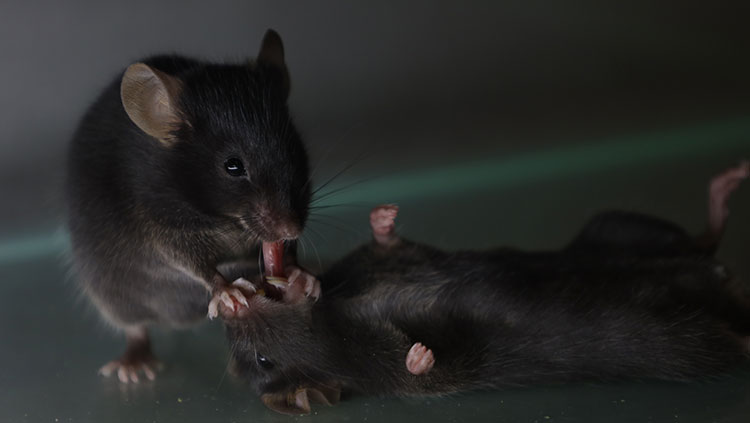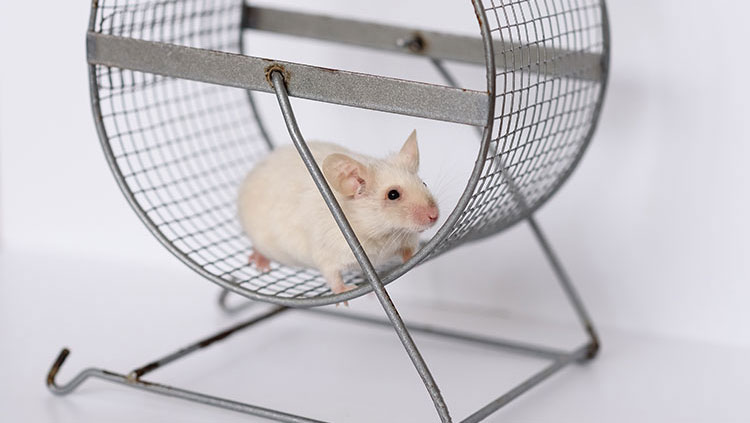ICYMI: Rolling in Horse Poop May Help Giant Pandas Stay Warm
- Published21 Dec 2020
- Author Alexis Wnuk
- Source BrainFacts/SfN

These were the top neuroscience stories for the week of December 7, 2020.
Rolling in Horse Poop May Help Giant Pandas Stay Warm
In China’s Foping National Nature Reserve, giant pandas had taken up a stinky habit: rolling around in fresh horse poop wherever they could find it. It turns out, chemicals in horse poop may block cold receptors in giant pandas’ skin, helping the animals stay warm, researchers reported December 7 in Proceedings of the National Academy of Sciences.
Motion-sensitive video cameras captured the pandas rolling in poop during cold weather, opting for fresh poop over days-old manure. Further experiments revealed pandas were drawn to two compounds abundant in fresh horse manure: beta-caryophyllene and beta-caryophyllene oxide. Suspecting the compounds might affect how the animals sense temperature, the scientists applied them to the paws of lab mice. The treated mice tolerated walking on a cold surface better than untreated mice, and they didn’t huddle together in cold ambient temperatures. Turns out, the compounds block a cold-sensing protein in neurons called TRPM8.
Related: How Do We Sense Temperature and Pressure?
Read more: Giant pandas may roll in horse poop to feel warm (Science News)
A Re-Engineered Psychedelic May Treat Depression and Addiction Without the Side Effects
A modified version of the psychoactive drug ibogaine may help treat depression and substance use disorder without the potentially harmful side effects, researchers reported December 9 in Nature. Derived from the roots of tabernanthe iboga, a West African shrub, ibogaine can reduce drug cravings and withdrawal. But it also causes hallucinations and can sometimes lead to cardiac arrhythmias. So, the researchers set out to engineer a safer analogue of the drug. They determined which portions of the molecule eased cravings and withdrawal and which triggered the side effects. Their synthetic drug — named tabernanthalog — reduced alcohol-seeking behavior in mice raised to binge alcohol. It also prevented relapse in heroin-addicted mice and improved behavioral symptoms in a mouse model of depression. None of the mice showed signs of hallucinations or heart problems.
Big picture: Psychedelic drugs are gaining traction as treatments for mental health disorders like depression and PTSD. But concerns about side effects and safety have limited their use. The new study shows the possibility to engineer modified versions of psychedelics that pack the same therapeutic punch without the risks.
Read more: Progress Toward A Safer Psychedelic Drug To Treat Depression And Addiction (NPR)
CONTENT PROVIDED BY
BrainFacts/SfN
Also In Neuroscience in the News
Trending
Popular articles on BrainFacts.org


















